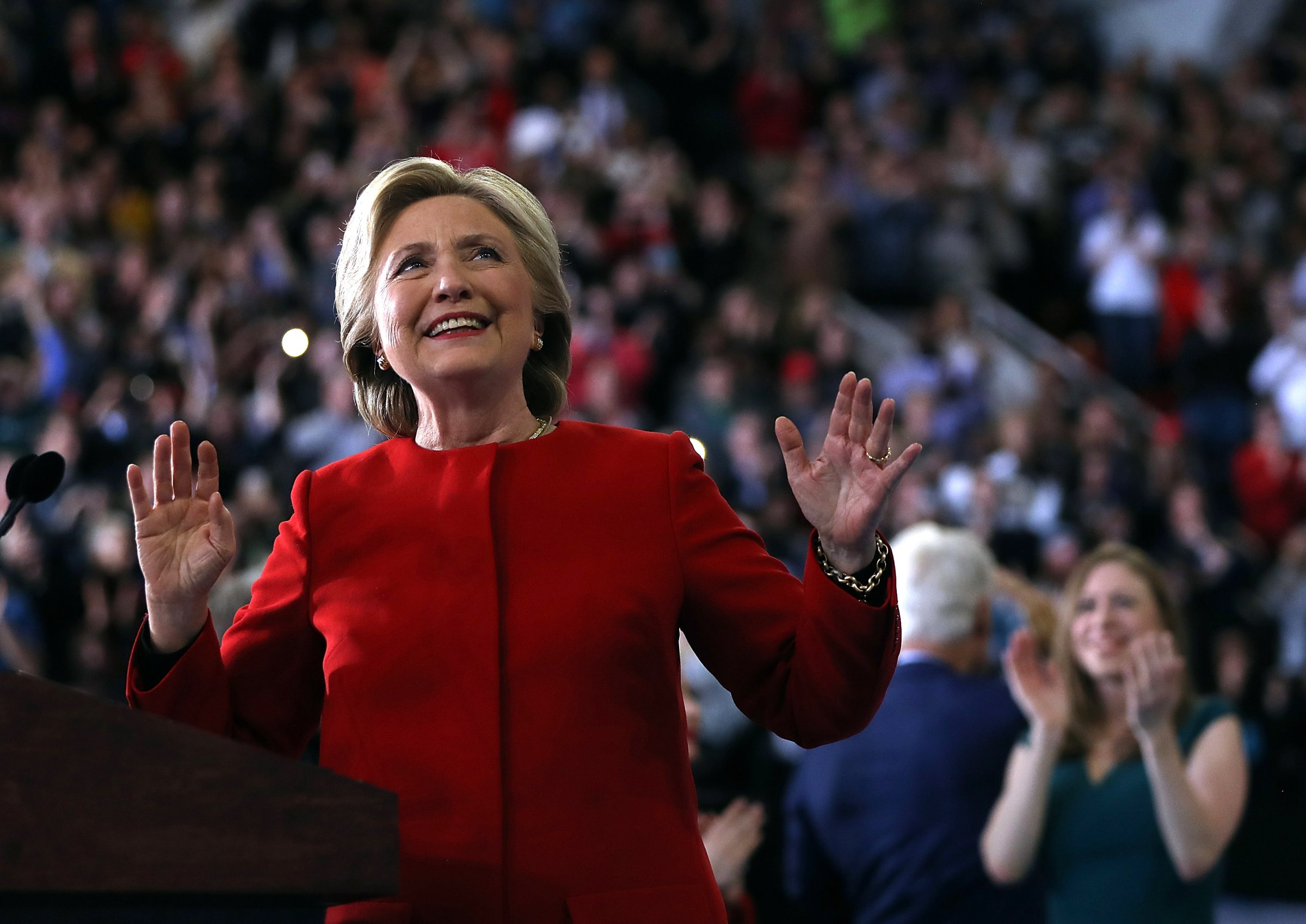
After voting for Hillary Clinton, the woman who could become the first female president of the United States, a number of women flocked to famed suffragist Susan B. Anthony’s gravesite in Rochester, New York. There, visitors left behind their “I Voted” stickers behind as a way to honor the woman who courageously fought for the 19th Amendment.
Anthony made undeniable contributions to the fight for women’s suffrage — but she’s not the only woman who deserves to be honored on Tuesday. There were a number of women who devoted their lives to fighting for equal rights for women. And too often, many of their contributions, particularly those from women of color, go ignored.
Motto rounded up five other suffragists who deserve to be remembered on what has the potential to be a historic election night.
Elizabeth Cady Stanton
Cady Stanton, whose gravesite in the Bronx also got a few visits on Tuesday, co-founded the National Woman Suffrage Association with Anthony in 1869. But Stanton’s contributions predate the founding of the NWSA. In 1848, Stanton helped organize the Seneca Falls Convention in New York and authored the Declaration of the Sentiments, a document calling for equal rights for women — including the right to vote. The Seneca Falls Convention is often viewed as the beginning of the women’s suffrage movement.
Sojourner Truth
Truth, a preacher who escaped slavery, is well known for her contributions to the abolitionist movement, but she also made an indelible mark on the women’s rights movement. While she frequently traveled across the country to raise awareness for her causes, one of her most famous contributions to the women’s rights movement came in the form of a speech at the 1851 Women’s Right Convention in Akron, Ohio. Truth was the only speaker who had once been held in slavery, and she delivered the iconic “Ain’t I A Woman” speech about the fortitude of women and the disadvantages women of color faced. “If the first woman God ever made was strong enough to turn the world upside down all alone, these women together ought to be able to turn it back, and get it right side up again! And now they is asking to do it, the men better let them,” Truth said.
Alice Paul
After developing a friendship with Emmeline Pankhurst, the founder of the British suffragist movement, Paul joined the National American Woman Suffrage Association in 1912. As a member of NAWSA, Paul advocated for a Constitutional amendment on women’s suffrage. In 1913, a day before Woodrow Wilson’s inauguration, she organized a march in Washington, D.C. to call attention to the issue of women’s suffrage. She’d go on to found the National Woman’s Party, and regularly lobbied and picketed Wilson to support an amendment granting women the right to vote — even landing herself in jail. After the passage of the 19th Amendment, Paul focused her efforts on (unsuccessfully) advocating for an Equal Rights Amendment.
Mary Church Terrell
Terrell, one of the first black women to earn a college degree, became a prominent voice for black women within the National American Woman Suffrage Association, speaking at the organization’s conventions in 1900. Terrell developed a close friendship with Susan B. Anthony, but later grew frustrated with how white suffragists treated black suffragists. In 1896, she helped found and became the first president of the National Association of Colored Women, which focused on elevating the condition of black women in the United States. “Colored women are the only group in this country who have two heavy handicaps to overcome, that of race as well as that of sex,” Terrell said.
Ida B. Wells-Barnett
Wells-Barnett, a journalist and prominent anti-lynching and civil rights activist, helped found the National Association of Colored Women alongside Terrell. Additionally, she co-founded the Alpha Suffrage Club, a group for black women in Illinois, in 1913. Under Wells-Barnett’s leadership, the group actively campaigned to elect the first black alderman in Illinois. In 1913, the group attended the National American Woman Suffrage Association’s parade in Washington D.C., but was asked by the march’s white organizers to walk at the end of the procession instead of with their state’s contingent. Wells-Barnett protested the decision and publicly called out the racism in the suffrage movement, landing on the front page of the Chicago Daily Tribune.
More Must-Reads from TIME
- Donald Trump Is TIME's 2024 Person of the Year
- Why We Chose Trump as Person of the Year
- Is Intermittent Fasting Good or Bad for You?
- The 100 Must-Read Books of 2024
- The 20 Best Christmas TV Episodes
- Column: If Optimism Feels Ridiculous Now, Try Hope
- The Future of Climate Action Is Trade Policy
- Merle Bombardieri Is Helping People Make the Baby Decision
Write to Samantha Cooney at samantha.cooney@time.com